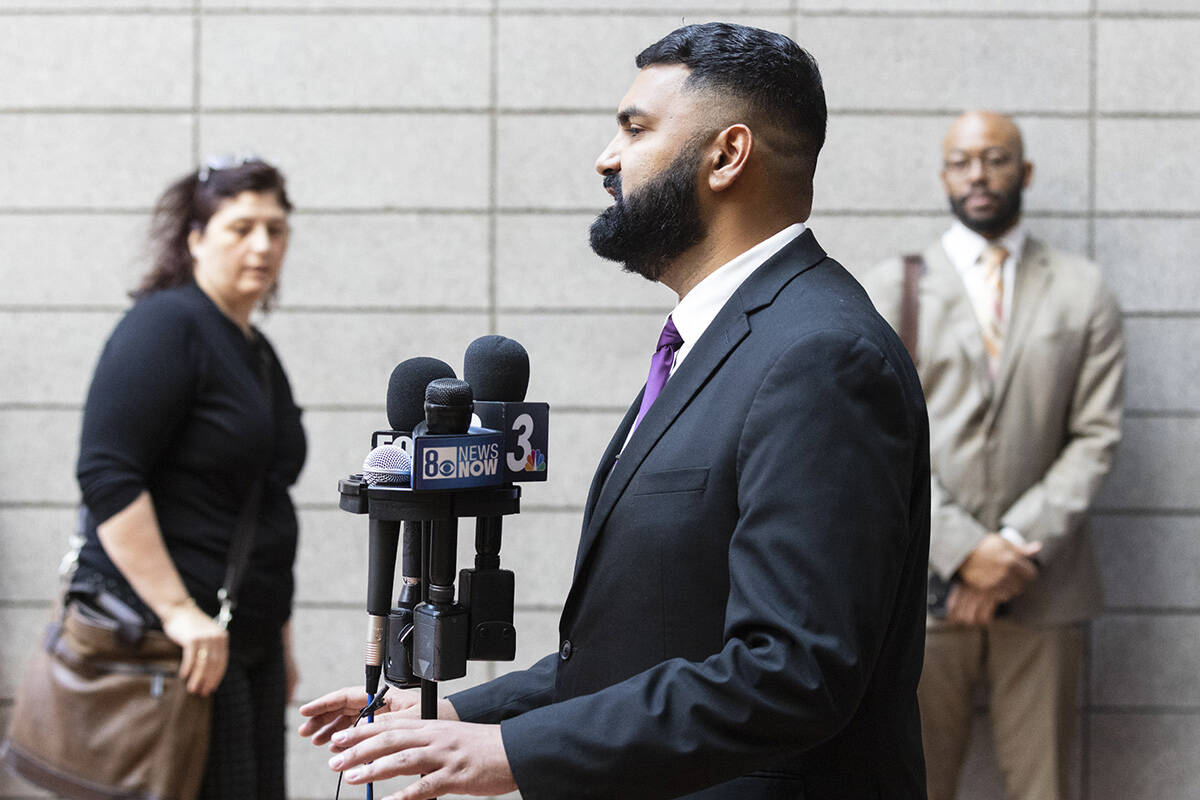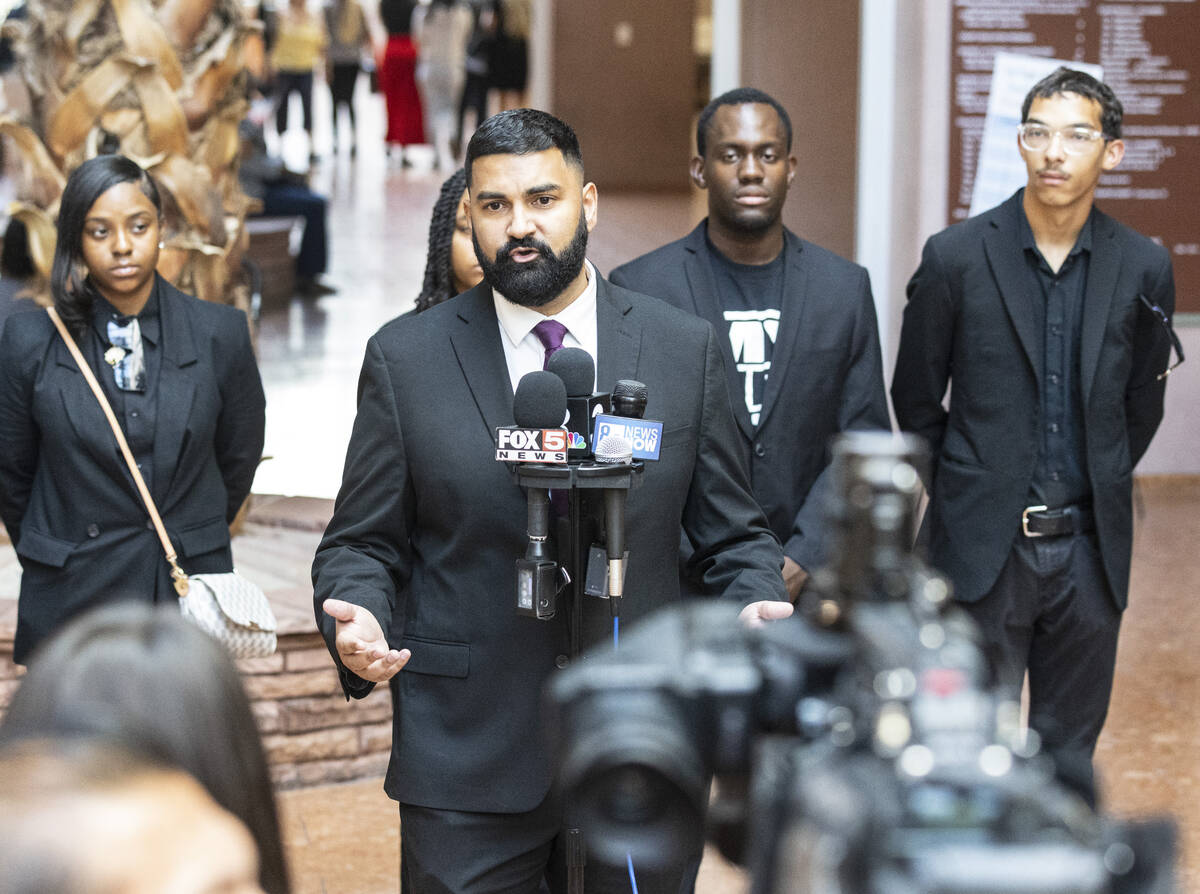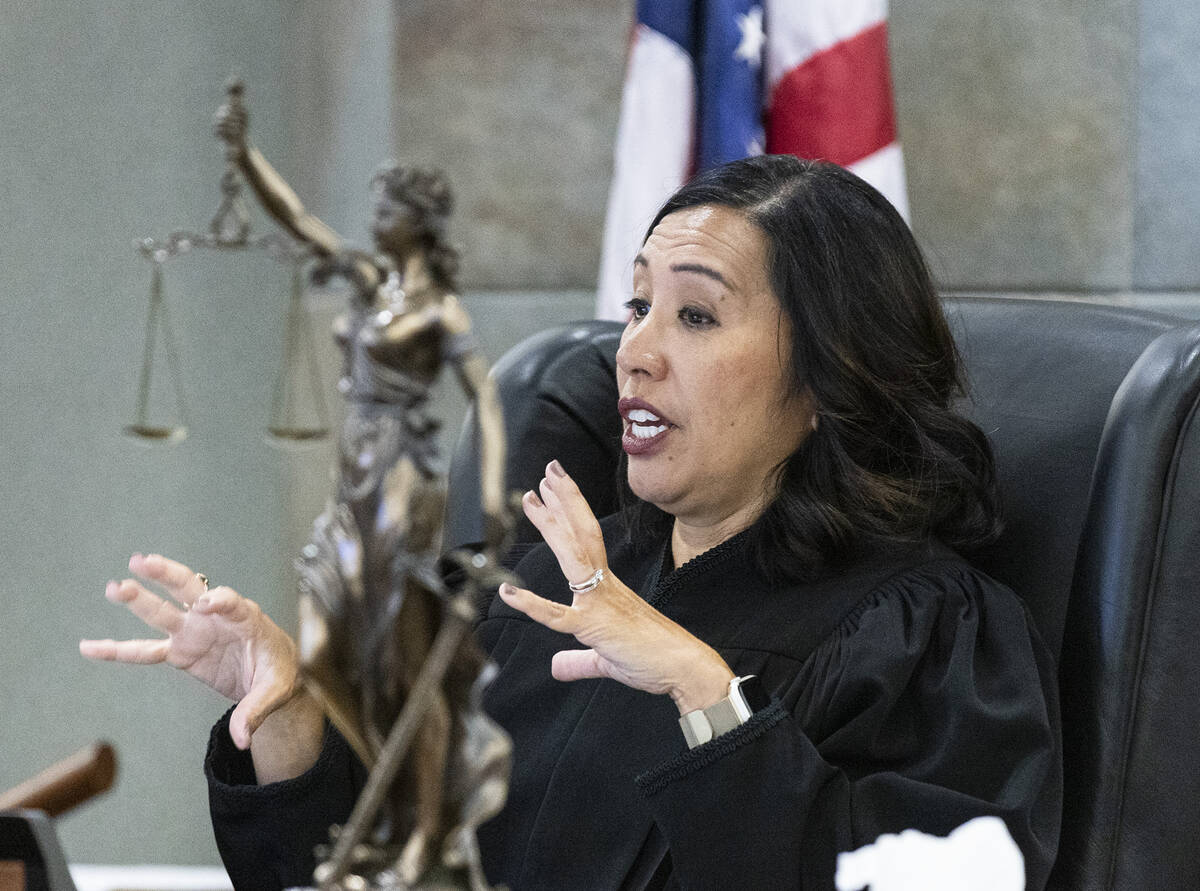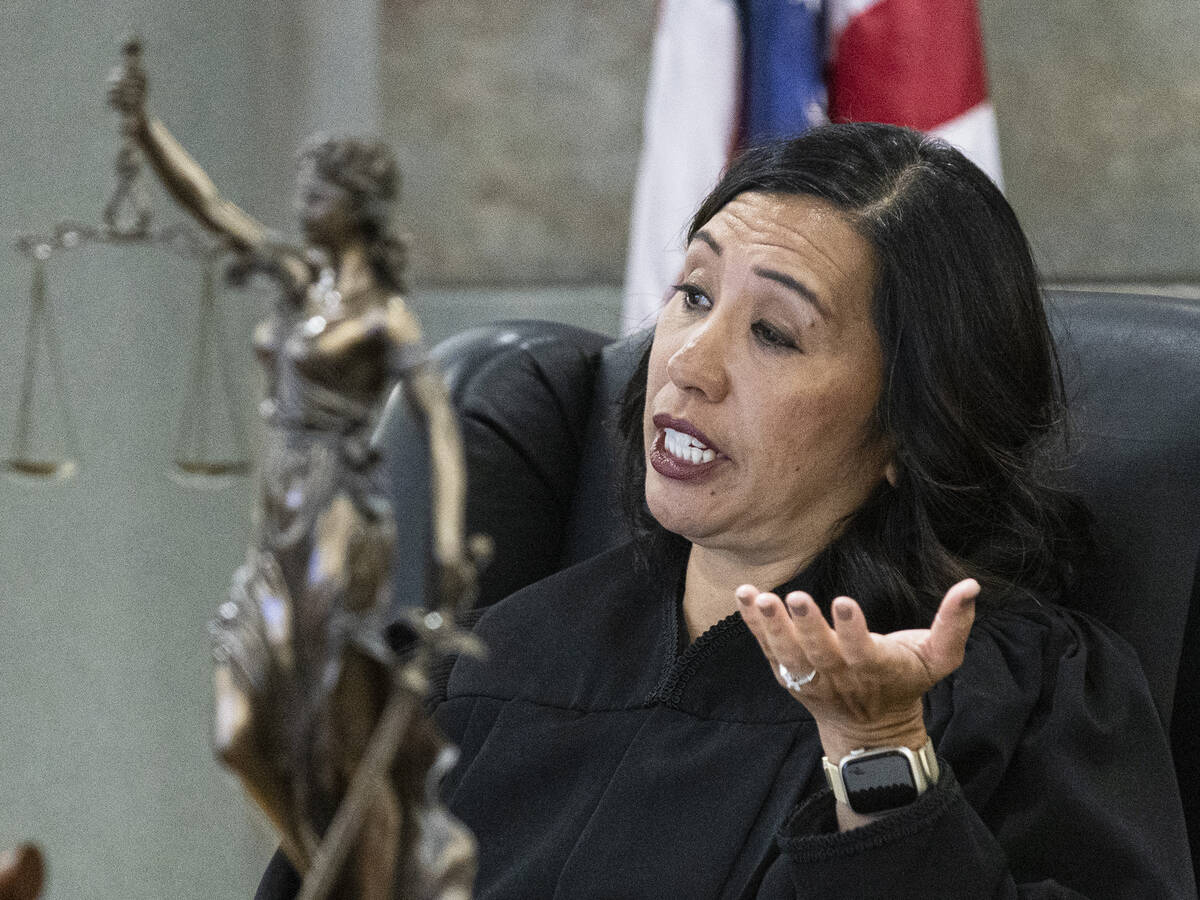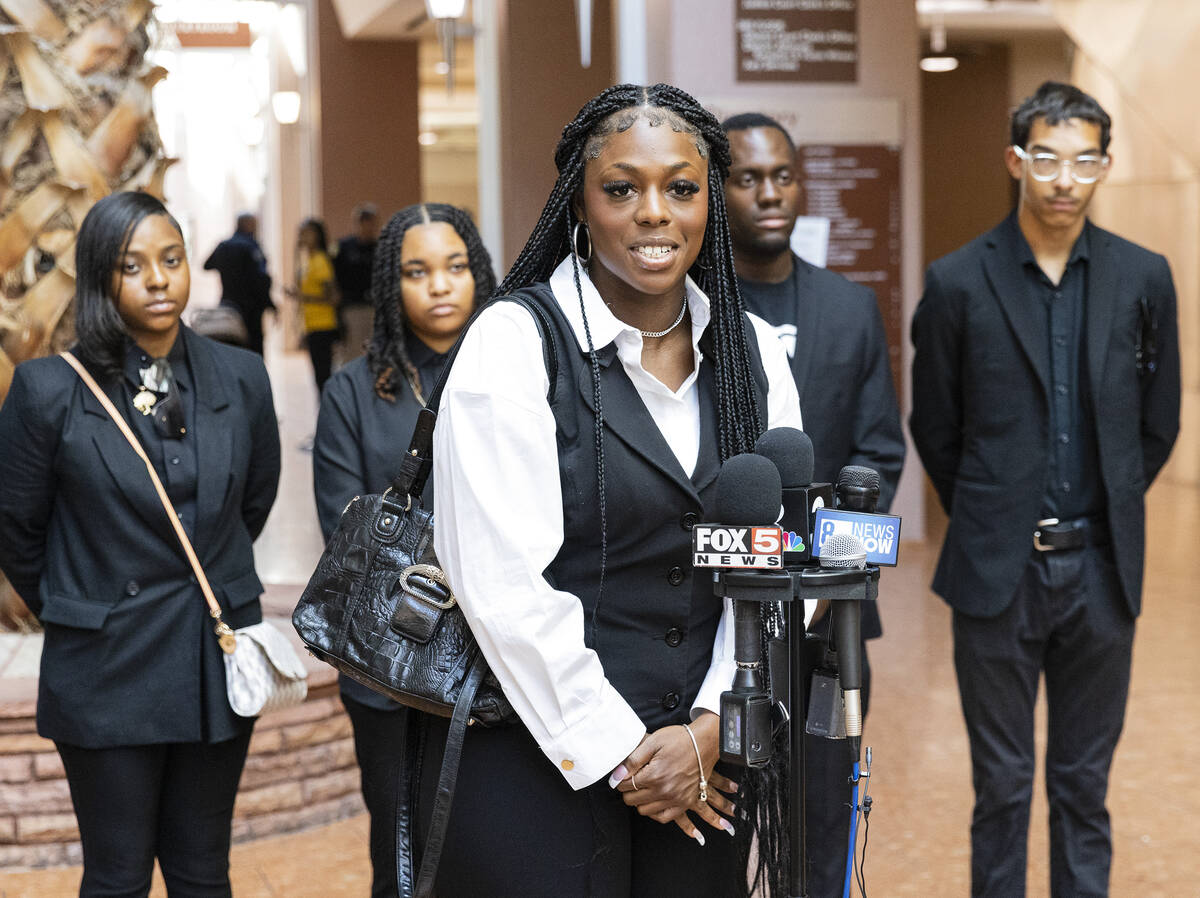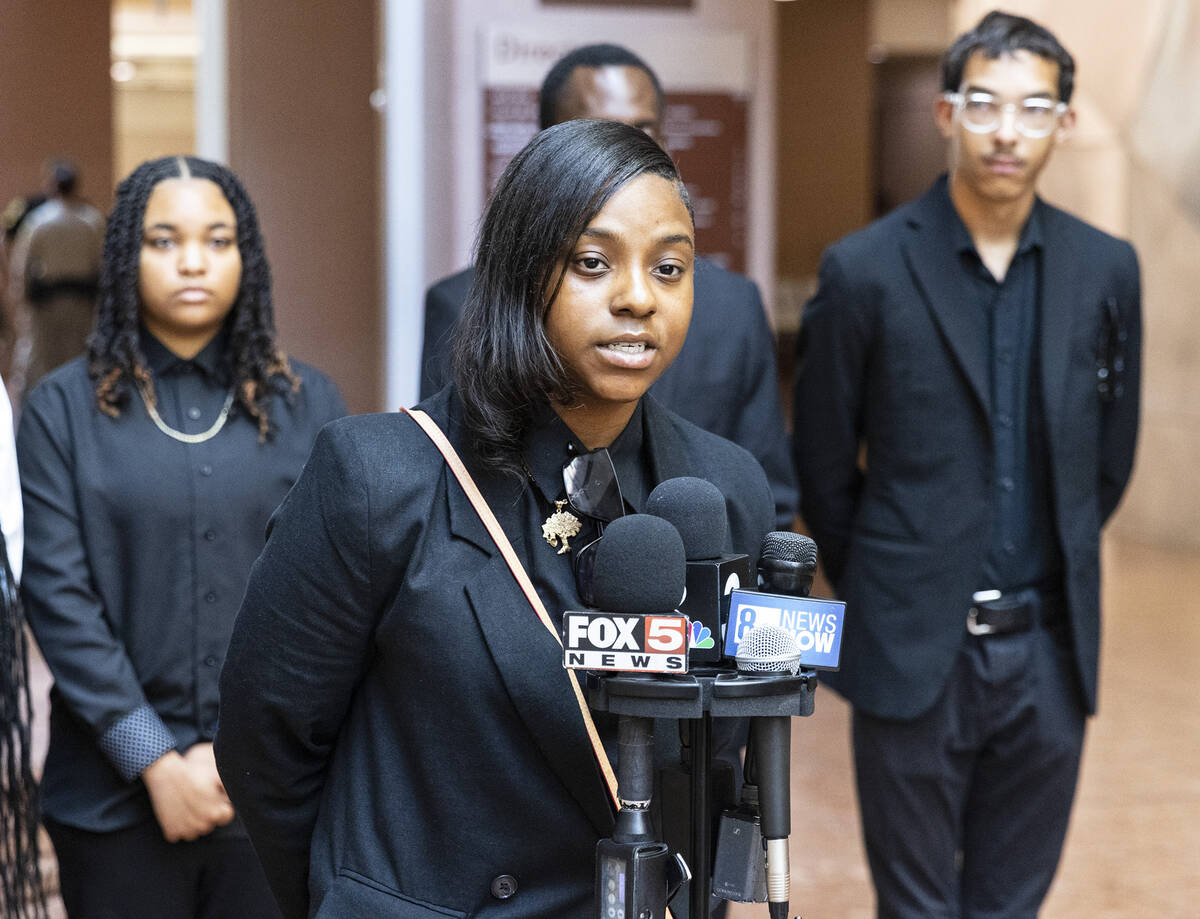ACLU pushes CCSD to release police records
The American Civil Liberties Union of Nevada appeared in court Tuesday seeking an order that would require the Clark County School District to release records related to a police altercation in February near Durango High School.
The ACLU — which is also representing two Durango students involved in the confrontation — filed a lawsuit in April in District Court against the school district.
It came after the district denied the ACLU’s public records request for information such as incident reports and body camera footage.
Before the hearing at the Regional Justice Center on Tuesday, ACLU of Nevada Executive Director Athar Haseebullah told reporters: “Obviously, we’re here this morning to ensure transparency and justice is provided to the community.”
There probably will be a civil suit in the near future, he said.
As for the public records case, the district refused to turn over records after making a series of inconsistent statements, Haseebullah said.
Public dollars have been used to hire private law firms to defend against not releasing public records, he said.
“It’s ridiculous,” Haseebullah said. “It’s mismanagement of funds at best, and it’s not transparent at all.”
Cheyenne High School student Kash Williams, 16, and Derrica Daniel with the ACLU’s emerging leaders program — and Quentin Savwoir, president of the NAACP Las Vegas branch — also addressed reporters.
Jackie Nichols, an attorney representing the school district, declined to comment after the two-hour court hearing, keeping her back turned toward reporters.
Video of the Durango confrontation — which was circulated widely on social media — appears to show school district police Lt. Jason Elfberg pushing a student to the ground and putting a knee on his back.
The district said it stemmed from an investigation into a report of a firearm near a school.
Outcome of court hearing
During the court hearing, Judge Danielle Chio didn’t rule on the case and said she would take the matter under advisement.
Chio said she hadn’t seen any video of the confrontation. She said she wanted to conduct an in camera review — one that’s done privately — of the video, citation, incident report and police dispatch notes.
“I need to see that in order to make a determination,” she said.
She also asked for yearbook or other photos of the students involved.
Chio gave the school district and ACLU 30 days to work on refining search terms for the public records request for internal district email communications.
If they can’t work that out, Chio gave the option for a hearing with a district information technology official where questions can be asked.
Nichols indicated she would work with the ACLU on search terms, but the ACLU’s attorney noted they would prefer a hearing that’s done publicly.
A status check is slated for 9 a.m. Aug. 8.
Video sparks public outcry
The video of the confrontation near Durango High sparked public outcry, including a February protest outside the district’s administrative center. Superintendent Jesus Jara and Police Chief Mike Blackeye also testified before state legislators in March about the police department’s use-of-force policies.
Jara told the Las Vegas Review-Journal’s editorial board last month that an investigation into the confrontation was closed and the officer involved wasn’t fired.
The district also won’t change its use-of-force policy, he said.
In its response last month to the ACLU’s lawsuit, the district said that the public records request was “broad and overly burdensome” and that more than 10,000 emails came back.
The district also argued that only a juvenile justice court can release records such as body camera footage. And it alleged the ACLU didn’t provide an explanation for “how internal records can benefit the public.”
The Review-Journal filed a public records request with the district seeking a copy of the incident report and body camera footage and prior complaints against Elfberg, but requests were denied.
Arguments in court
During the hearing, Chio said that she felt the district’s response to the ACLU’s public records request was “a little sloppy” and the district could have been more specific when addressing the reasons for denial.
Information presented during the hearing indicated three students were involved in the Durango confrontation and that there are six body-worn camera videos.
One student was issued a citation, but there wasn’t a juvenile delinquency petition filed. The student was referred to The Harbor diversion program but declined to participate, an attorney said.
The district’s employment investigation related to the confrontation was completed April 27, Nichols said.
She argued that at the time the ACLU filed its public records request, there was an ongoing employment investigation. The investigation concluded after litigation began, she said.
Chio asked if the district has an ongoing obligation to comply with the ACLU request.
Nichols said she doesn’t believe there’s anything that requires public agencies to keep a request open once it’s denied.
“What it is leaving open is to invite another public records request,” she said.
In terms of juvenile justice information, Nichols argued that information is so co-mingled that it can’t be redacted.
If the district redacted everything related to the student who received the citation, “the ACLU would be left with nothing,” she said.
There’s also no way the district can devote its one public records employee to that review process, she said.
But an ACLU attorney argued it’s not a defense when the nation’s fifth-largest district fails to have proper staffing.



